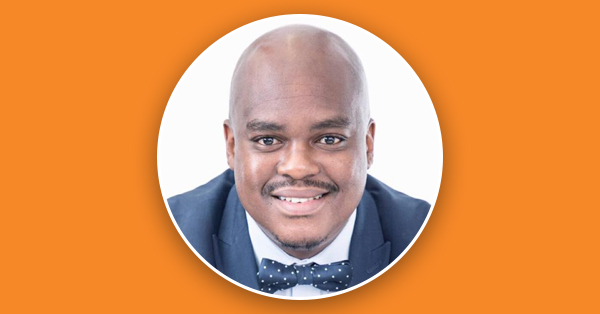
Thabo Ncalo: Africa as an investment destination is quite attractive – it’s a market with growing populations and relatively high economic growth. So there is significant room for many lines of the insurance business (such as life, short term and other innovative products such as micro-insurance) to grow over time.
Even though this does come with its risks, many insurers would be quite attracted to some of the big numbers and potential for market growth that we are seeing.
“Africa as an investment destination is quite attractive.”
Post-Covid, things might obviously slow down a bit as businesses re-centre themselves, but you’d still expect markets in Africa to continue to grow quite well, particularly big countries like Nigeria, Kenya (and broadly across East Africa) and in Francophone Africa.
Thabo: Much like the rest of the world, Africa faces physical and transition risks – and one could argue that a large number of countries in Africa are not fully prepared for these risks.
From a transition risk perspective, Africa faces challenges emanating from some reliance on fossil fuels, for example, gas in Mozambique, and still a lot of untapped resources in countries like Nigeria and Angola – so there is a question on how economies will shift in a decarbonising world.
“From a transition risk perspective, Africa faces challenges emanating
from some reliance on fossil fuels.”
So how do these economies respond? To a large degree, they've been quite reliant on this single fossil fuel resource to survive - Nigeria being a case in point around oil. How do we now manage those risks and make sure we transition people who are in fossil fuel industries into new industries?
Take South Africa and its reliance on coal for energy. If you look at a plan to decarbonise your investment portfolios and you say that you will either cut down or stop investing in coal, then how do you responsibly reallocate that capital but also pay attention to the resulting social implications. For example what do you do with folks who work in these industries and how do we transition them into renewables and other industries?
Thabo: An increasing number of asset managers and asset owners in Africa are paying attention to ESG issues and increasingly becoming signatories to the likes of PRI principles and other codes such as CRISA – the Code for Responsible Investing in South Africa. There's certainly a very big push from boards of companies to pay attention to climate change and other ESG issues.
One difference between Africa, particularly in South Africa, and much of the world is that many parts of the world are focused on the E of ESG – particularly around climate change.
For Africa, in addition to climate action, we also have some pretty big challenges, particularly around the levels of poverty and inequality that we're still dealing with, health challenges, access to services and infrastructure, etc - so there is a broader focus over and above the E of ESG so that we also cover social challenges. This is also important in the context of a just transition for African countries.
“An increasing number of asset managers and asset owners in
Africa are paying attention to ESG issues.”
As investors are coming from the U.K. and looking at Africa, your plan has to be tweaked. A lot of great attention will be on the social agenda and the issues are different and unique for each market -from Kenya to Nigeria to South Africa.
If you're investing as an external investor, I think it's very important that you choose companies and sectors that are paying attention to all these ESG issues and actively engaging and addressing them. If they’re not paying attention to these key issues that's going to come with a very heavy price over the long term.
Thabo: You will typically find that the engagement levels are still quite poor, but we've had a lot of concrete action, where active investors are taking issues to boards of companies.
At Old Mutual, for example, we've been very active in engaging companies – in the instance of energy and chemical company Sasol, not all of those engagements end up getting the vote at the AGM. So, it is still a bit slow. But I think a lot of large asset managers and large asset owners are now starting to engage more.
We’re making it more compulsory, at least for companies to start with their disclosure. Data is still a big challenge and we probably need to see more standardisation globally on how companies disclose on issues such as climate impacts and plans.
“A lot of large asset managers and large asset owners are now s
tarting to engage more.”
We haven't gone into the exclusion route just yet because there are obviously other issues to address first and it’s important that we ensure a just transition for African countries and companies.
As an investor in Africa, if you exclude certain companies out of the investment portfolio or universe, you also have to think about things like benchmark risk and how their exclusion affects your investment performance. In a country like South Africa, where our market is very concentrated and heavily reliant on big fossil fuel companies like Sasol, Exxaro and Anglo American it's very difficult to just exclude them out of your investment portfolio.
It's therefore very important that you come up with some sort of plan or glide path as to how you're going to decarbonised your portfolio. And the first part of it is engagement and active stewardship, being able to at least let them know that this is how we're thinking about it as investors and partner with them on their climate action, social and other ESG plans.